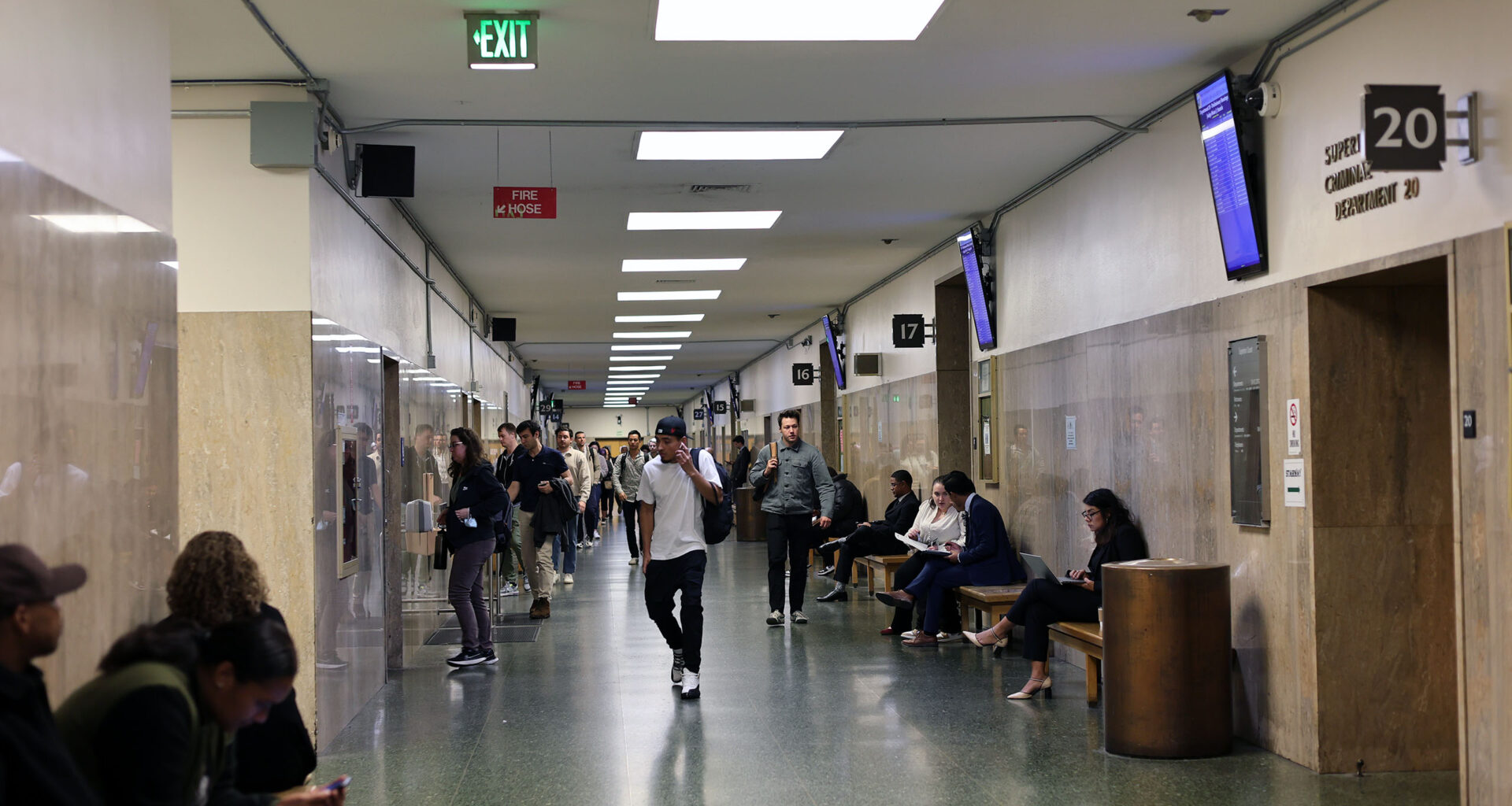The San Francisco public defender’s office has for months said that it does not have enough lawyers to handle the influx of criminal cases District Attorney Brooke Jenkins is prosecuting.
Now, private defense attorneys say they have become a de facto satellite office of the public defender — and are themselves at capacity.
“Every day we scramble to see who can come in and cover,” said Julie Truan, director of court programs for the Bar Association of San Francisco, on Wednesday. Truan addressed the issue at a hearing before Judge Harry Dorfman’s courtroom at the Hall of Justice.
The judge has invited representatives from the Bar Association, public defender’s office, district attorney’s office, and sheriff’s department to discuss solutions to the workload crisis. He has yet to decide whether he can order the bar to recruit more lawyers, or demand the public defender do so.
District Attorney Jenkins has ramped up criminal prosecutions in San Francisco, particularly misdemeanors. She has said San Francisco is “bogged down in low-level crime.” In May, after public defenders began declaring themselves “unavailable” to defend new cases one day a week, those clients were absorbed by the attorneys with the bar.
Their caseloads are now mounting. Private defense attorneys took on nearly half of all felony cases in October on top of their regular conflict cases, Truan said. While the bar was working with the public defender’s office, the “goalpost” of how many cases private attorneys would have to cover “kept moving.”
San Francisco routinely contracts private attorneys to take on cases when public defenders have a conflict of interest with another client. But recently, as one such attorney put it, the Bar Association has been acting “like a second public defender’s office” and backfilling the city’s obligations to offer free criminal defense to those accused of crimes.
Now, for the first time, Traun said, the bar is also at capacity.
Between May and October, the bar received the names of between 10 and 20 people charged with a felony that the public defender’s office declined to represent, Traun said. To meet the extra demand, 20 defense attorneys from other jurisdictions were recruited to help the 50-some attorneys with the bar.
But then, starting in October, people arrested for felonies on Friday were also added to the Bar’s workload, Traun said. She was then told that public defenders could not represent some people arrested for misdemeanors, she added.
That opened the floodgates. At the end of just one week, the bar received the names of 48 defendants the public defender could not represent, Traun said. The process became “completely unsustainable,” she said.
The city controller is now looking into the workloads of both the public defender and district attorney’s office. That forthcoming report, which will likely be available in December, will analyze costs and review the number of cases the public defender is referring out.
At today’s hearing, Assistant District Attorney Ana Gonzalez described the public defender’s unavailability as an “abdication of their constitutional duty to indigent clients,” and said her office was able to handle its caseload.
“Who do you blame?” Dorfman asked Traun.
Traun said it wasn’t her place to say. Her main concern, she said, was that her defense attorneys were often faced with people in custody who did not have anyone to represent them, and they could no longer keep stepping in.

